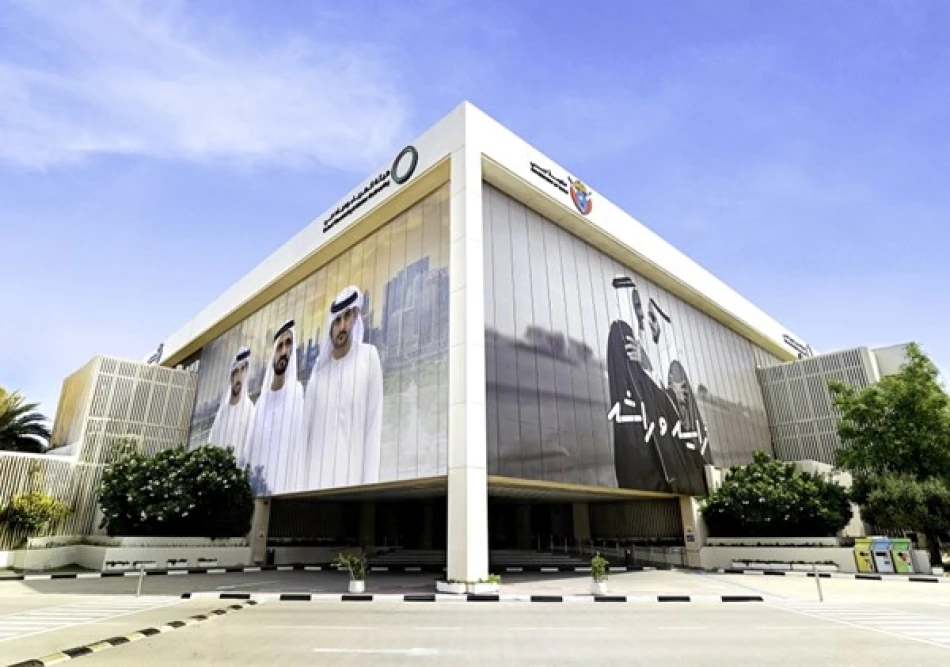
Dubai Electricity & Water Authority Reports AED 2.9 Billion in Profits for First Half of Year
Dubai's Power Giant DEWA Posts Record-Breaking Growth as Emirate's Economic Boom Drives Energy Demand
Dubai Electricity and Water Authority (DEWA) has delivered its strongest financial performance in company history, with profits surging 13.2% to AED 2.9 billion in the first half of 2025. The utility's record results underscore Dubai's continued economic expansion and position the emirate as a regional energy infrastructure leader, while demonstrating how strategic investments in renewable capacity can drive both sustainability goals and shareholder returns.
Financial Performance Reflects Dubai's Economic Momentum
DEWA's impressive financial metrics tell the story of Dubai's robust economic growth. Revenues climbed 6.9% to AED 14.6 billion, while earnings before interest, taxes, depreciation, and amortization (EBITDA) reached AED 7 billion. Operating profits hit AED 3.7 billion, reflecting the utility's operational efficiency in managing the emirate's growing energy demands.
The company's board approved dividend distributions of AED 3.1 billion for the first half of 2025, scheduled for payment in October. This substantial payout signals management's confidence in sustained cash flow generation and provides attractive returns for investors, including the Dubai government as majority shareholder.
Infrastructure Investment Strategy Pays Off
DEWA's success stems from a massive infrastructure investment program totaling over AED 230 billion to date. This capital deployment strategy mirrors approaches taken by leading utilities in Singapore and other Gulf states, where governments have prioritized energy security and capacity expansion ahead of demand growth.
CEO Saeed Mohammed Al Tayer emphasized that these results reflect "continuous growth in demand, execution efficiency, and operational excellence," positioning DEWA at the forefront of the global utility sector.
Energy Production Hits New Records
Operational metrics demonstrate DEWA's ability to meet Dubai's expanding energy appetite. Total energy production, including independent power projects, reached a record 16.9 terawatt hours in Q2 2025, marking a 10.88% increase from 15.3 TWh in the same period of 2024.
Peak energy demand rose 2.95% year-over-year to 10.545 gigawatts, reflecting Dubai's continued population growth, business expansion, and the energy-intensive nature of the emirate's data center and industrial sectors. This demand growth trajectory aligns with Dubai's positioning as a regional business hub and its ambitious economic diversification plans.
Clean Energy Transition Accelerates
DEWA produced 3.30 TWh of clean energy during Q2 2025, representing 19.46% of total generation. This renewable energy share positions Dubai ahead of many regional peers and demonstrates tangible progress toward the UAE's net-zero commitments. The clean energy output came alongside 2.18 TWh from the Hassyan power plant and 11.46 TWh from other generation facilities.
The utility's renewable capacity reached 3.860 gigawatts out of total installed capacity of 17.979 GW, providing a solid foundation for further clean energy expansion as Dubai works toward its 2050 carbon neutrality target.
Water Infrastructure Expansion Meets Growing Demand
Dubai's water sector performance reflects similar growth dynamics. Desalinated water production jumped 9.55% to a record 40.78 billion gallons in Q2 2025, with peak daily demand reaching 475 million gallons—a 5.87% increase from the previous year.
This water demand growth underscores Dubai's continued urban development and population expansion, while highlighting the critical importance of desalination infrastructure in the water-scarce Gulf region. DEWA's ability to scale water production efficiently provides a competitive advantage for Dubai's economic development.
Market Implications and Investment Outlook
DEWA's customer base expanded to 1,292,487 accounts by the end of Q2 2025, representing 4.81% growth year-over-year. This steady customer growth, combined with rising per-capita consumption, creates a favorable demand environment for sustained revenue expansion.
For investors, DEWA's performance demonstrates the investment appeal of Gulf utility companies benefiting from economic diversification and population growth. The combination of regulated utility returns, dividend yields, and exposure to renewable energy transitions makes DEWA an attractive proxy for Dubai's broader economic development story.
The utility's infrastructure expansion program, including the commissioning of two 132-kilovolt substations and 483 11-kilovolt substations during Q2, positions DEWA to capture continued demand growth while maintaining system reliability—a critical factor for Dubai's business-friendly reputation.
Most Viewed News

 Layla Al Mansoori
Layla Al Mansoori






